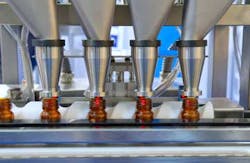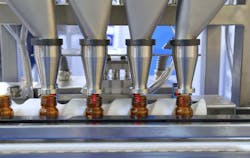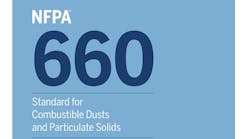FDA takes action against Indian pharmaceutical companies
Pharmaceutical company Hospira Inc. has been warned by the U.S. Food and Drug Administration (FDA) over lapses in the manufacturing of drugs, which were detected during an inspection of its facility in Irungattukottai, India, in October 2012.
The warning letter sent to the company stated that unless the manufacturing processes at the facility were improved so that they complied with regulations, drugs produced at the plant may be denied access to the United States. The company announced that the FDA warning letter referred to breaches of quality regulations for finished drugs.
FDA inspectors found that surfaces at the facility were not properly sanitized and aseptic manufacturing intervention was not performed. Moreover, during the inspection, employees did not always wear gloves when handling products, which suggested that the production may not have been sterile, as required. Unless adequate assurance of their sterility could be provided, products cannot enter the U.S. market, the agency explained. It demanded that Hospira provided an action plan to correct the failings and to prevent further substandard manufacturing over the next 30 days.
A spokesman for the company stated that Hospira was currently reviewing the warning letter and the recommendation made by FDA inspectors, but pointed out that the letter was not likely to result in dramatic changes to the scope or timing of the company's remediation efforts at IKKT or to affect other pharmaceutical manufacturing plants. He added that Hospira was taking the matter seriously and planned to do whatever possible to respond in detail to the letter within the allowed timeframe.
RELATED: Chinese pharma businesses eye international markets
In March 2010, Hospira agreed to buy the facility from Orchid Chemicals, a producer of generic injectable finished dosage drugs. The plant manufactures beta-lactam antibiotic formulations manufacturing complex (comprising cephalosporin, penicillin and carbapenem facilities). ? pharmaceutical research and development facility is also situated at the same site. Hospira has been struggling to comply with regulations on multiple occasions at its manufacturing plants since 2010.
Meanwhile, it emerged that Hospira was not the only Indian drug producer that has been under scrutiny. The FDA has also kept a close eye on generic drug makers Ranbaxy and Wockhardt, which also market drug products for use in the United States. The U.S. Department of Justice reached an agreement with Ranbaxy, with the company having to pay $500 million in civil and criminal fines. The drug manufacturer pleaded guilty to three accounts related to the production of drugs at two Indian facilities. The FDA found that the company violated regulations regarding a series of malpractices and data manipulation. The Times of India revealed that before the FDA took any action, Ranbaxy had been warned that it needed to improve its systems and elect to be controlled by external auditors.
The other drug maker, Wockhardt, received an import alert on products manufactured at a plant in Maharashtra. The import alert is practically a ban that leads to detention without the physical examination of drugs produced at the facility in question. The company estimated that the ban would hit its revenues and cause the potential loss of $100 million this year but it would try to mitigate the effect by moving part of its production to other facilities.



